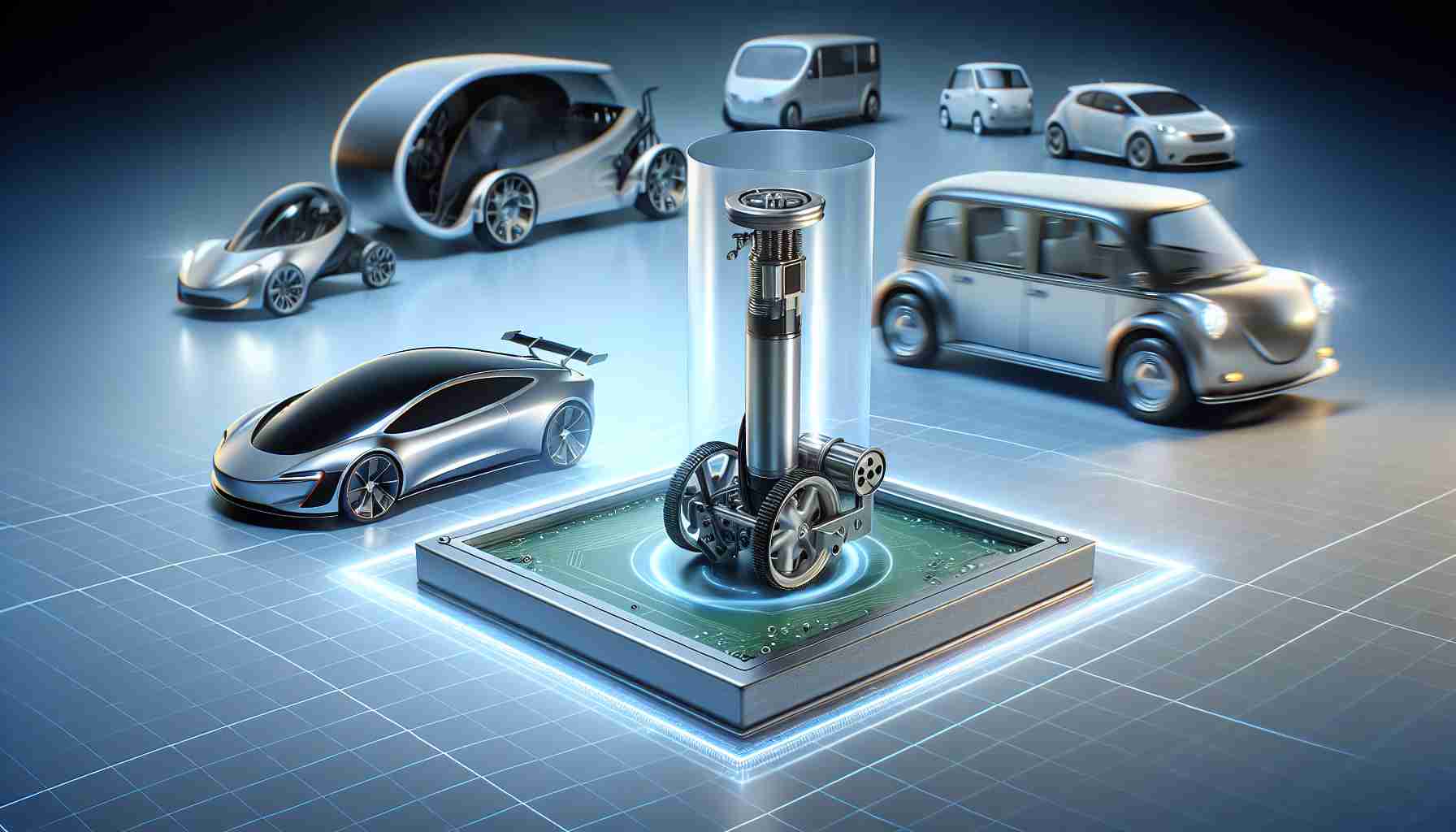In a rapidly evolving world of electric vehicles (EVs), the spotlight is now on a revolutionary breakthrough: the solid-state battery. This innovation is causing a stir among automotive circles and is positioned to redefine the future of transportation.
The Rise of Solid-State Technology
Solid-state batteries are making waves by challenging traditional lithium-ion designs. The key difference lies in the substitution of a solid electrolyte for the standard liquid or gel. This modification significantly boosts energy density, promising to enhance the driving range by up to 50%. Moreover, these batteries shed considerable weight and come with superior safety features, minimizing overheating risks, which have long been associated with lithium-ion versions.
Automakers Leading the Charge
Industry giants like Toyota and BMW are paving the way in the integration of this cutting-edge technology. Toyota is gearing up to demonstrate a prototype featuring solid-state batteries, with ambitions for these EVs to overtake gasoline-powered cars in terms of efficiency and refueling speed within the current decade. This shift aspires to set new benchmarks in the automotive industry.
Challenges on the Horizon
Despite its merits, the trajectory of solid-state battery adoption isn’t without its hurdles. The path to affordable production and the ability to scale up manufacturing pose significant barriers. Nevertheless, the environmental benefits are undeniable, aligning with global sustainability objectives, as solid-state batteries are poised to offer a cleaner, more reliable energy alternative.
A Glimpse into the Future
This technological evolution signals a transformative era for electric vehicles, promising not only longer journeys but also greener and safer rides. As research progresses, solid-state batteries are expected to be at the forefront of electric vehicle innovation, heralding a new age of transportation efficiency and sustainability.
Stay updated with the latest advancements in EV technology from leaders like Toyota and BMW as the path to the future gets electrifyingly closer.
Revolutionizing Transportation: The Environmental Impact of Solid-State Batteries
The emergence of solid-state batteries represents a significant turning point in the electric vehicle industry, with profound implications for the environment. By replacing the traditional liquid or gel electrolyte with a solid form, these batteries promise not only to revolutionize transportation but also to contribute meaningfully to global environmental efforts.
Environmental Impact
Solid-state batteries offer a series of environmental benefits that are crucial in the fight against climate change. One of the most significant advantages is their higher energy density. This enables vehicles to travel longer distances on a single charge, thereby reducing the need for frequent recharges and ultimately decreasing electricity consumption from non-renewable sources. The improved efficiency directly correlates to reduced greenhouse gas emissions, aiding efforts to curb global warming.
Furthermore, solid-state batteries promise superior safety features, minimizing risks of overheating and subsequent hazardous incidents that could lead to toxic waste or emissions. This adds an additional layer of environmental protection, as it reduces the likelihood of battery-related fires or chemical spills, which can have devastating effects on local ecosystems.
Beyond the Environment: Implications for Humanity and the Economy
The environmental benefits of solid-state technology naturally extend to humanity’s well-being. Cleaner energy solutions mitigate health risks associated with air pollution from traditional gasoline-powered engines. This transition supports healthier urban communities by significantly improving air quality.
Economically, the integration of solid-state batteries has the potential to boost the EV industry, creating new jobs and driving technological innovation. As production becomes more widespread and cost-effective, consumer prices are expected to decrease, making EVs more accessible to the general public. This democratization of clean transportation has the potential to reduce humanity’s overall carbon footprint, setting a precedent for other industries to follow.
Connections to the Future of Humanity
Solid-state batteries symbolize not just a technological advancement but a pivotal moment in the quest for sustainable energy solutions. By integrating these batteries into everyday transportation, we take a significant step towards a future defined by clean, efficient, and renewable energy sources. This aligns with global sustainability agendas and international agreements focused on reducing carbon emissions and adopting greener technologies.
As industry leaders Toyota and BMW continue to lead research and development efforts, solid-state batteries could redefine not just how we travel but how we interact with our environment. The long-term impact extends beyond transportation, potentially influencing energy storage solutions for renewable sources and broader applications in other sectors.
In summary, the advent of solid-state batteries marks a promising milestone in humanity’s journey towards a more sustainable and environmentally-conscious future, with the potential to reshape the economic landscape and fundamentally improve global quality of life.
Solid-State Batteries: The Game-Changer in Electric Vehicle Technology
In the ever-evolving landscape of electric vehicles (EVs), breakthroughs in battery technology are seizing attention, with solid-state batteries at the forefront. As automakers invest heavily in this promising innovation, a new era of enhanced driving ranges, safety, and sustainability looms on the horizon.
Proven Advantages and Emerging Trends
Solid-state batteries stand out due to their distinctive use of a solid electrolyte, which replaces the traditional liquid or gel found in lithium-ion batteries. This alteration significantly enhances energy density, offering potential driving range extensions by up to 50%. Furthermore, the reduced weight and improved safety profile—marked by lower overheating risks—position solid-state batteries as superior alternatives.
The trend of adopting solid-state batteries underscores their emerging role as a pivotal factor in the evolution of EV technology. Industry leaders like Toyota and BMW are at the helm, urging further exploration of these power sources. Toyota is reportedly on track to unveil a prototype adorned with solid-state batteries, aspiring to exceed the efficiency levels and refueling speeds of gasoline cars.
Reviewing the Pros and Cons
Pros:
– Improved energy density enhances driving range.
– Safer performance with minimized overheating risks.
– Light-weight design contributes to better vehicle efficiency.
Cons:
– Current high production costs hinder widespread adoption.
– Scaling up manufacturing remains challenging.
Facing Production and Scale Challenges
While solid-state batteries present a compelling case for revolutionizing the EV domain, their path to mass adoption faces hurdles. High production costs and scalability requirements present formidable challenges. However, these obstacles are seen as temporary roadblocks, as ongoing research and investment promise eventual breakthroughs that could make these batteries more accessible.
Market Predictions and Future Insights
Market analysts predict a growing inclination toward solid-state battery integration as a standard within EVs. The increased focus on sustainability further accelerates this trend, as solid-state technology holds the promise of aligning EV production with global environmental goals.
This pivotal shift in battery technology is forecasted to reshape the market dynamics in coming years. As technological advancements continue and production efficiency improves, the adoption of solid-state batteries is set to expand significantly.
For more on the developments and innovations in electric vehicles, keep an eye on updates from automotive leaders like Toyota and BMW. With ongoing advancements, the electrified future of transportation becomes ever more promising.







